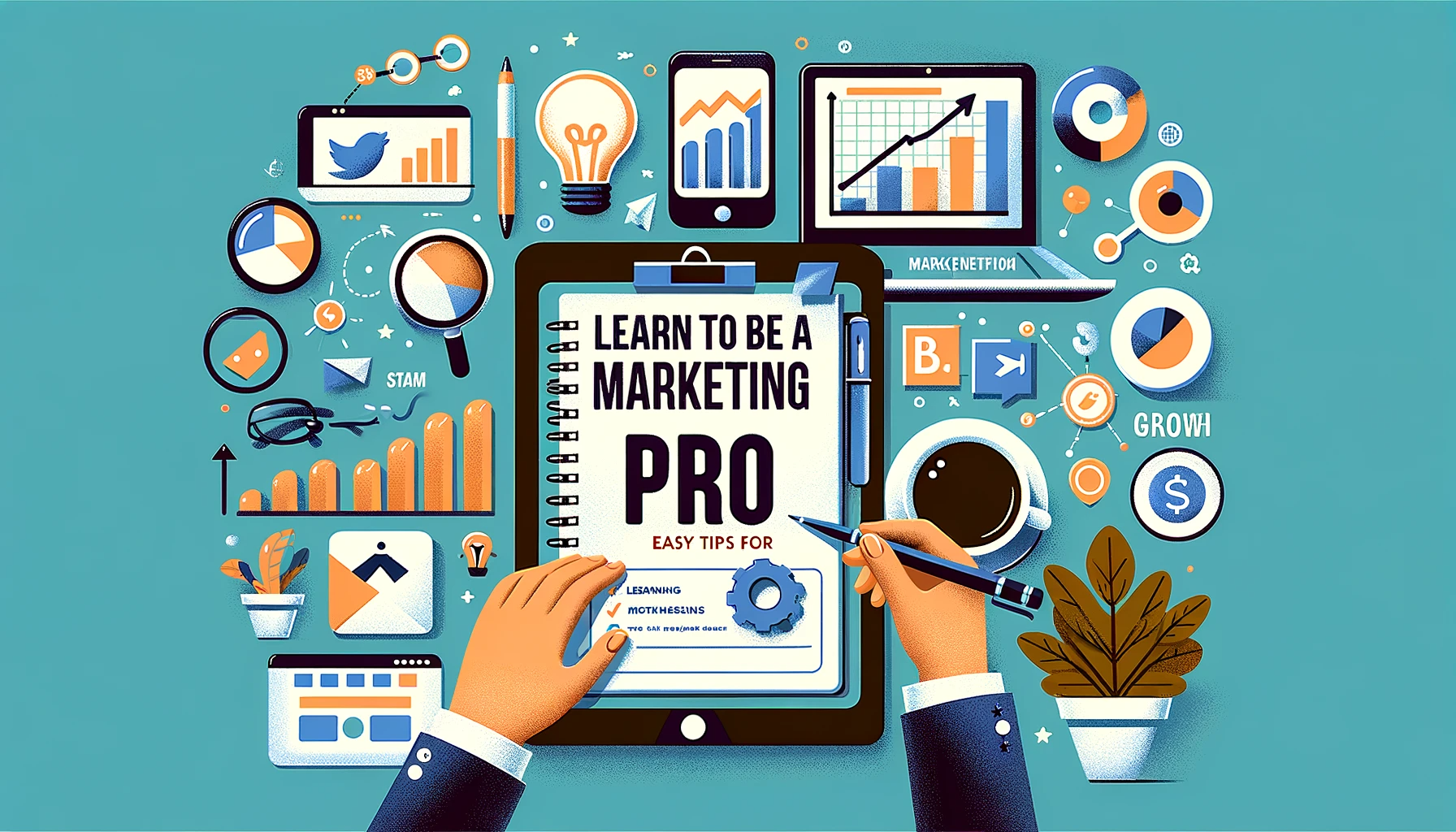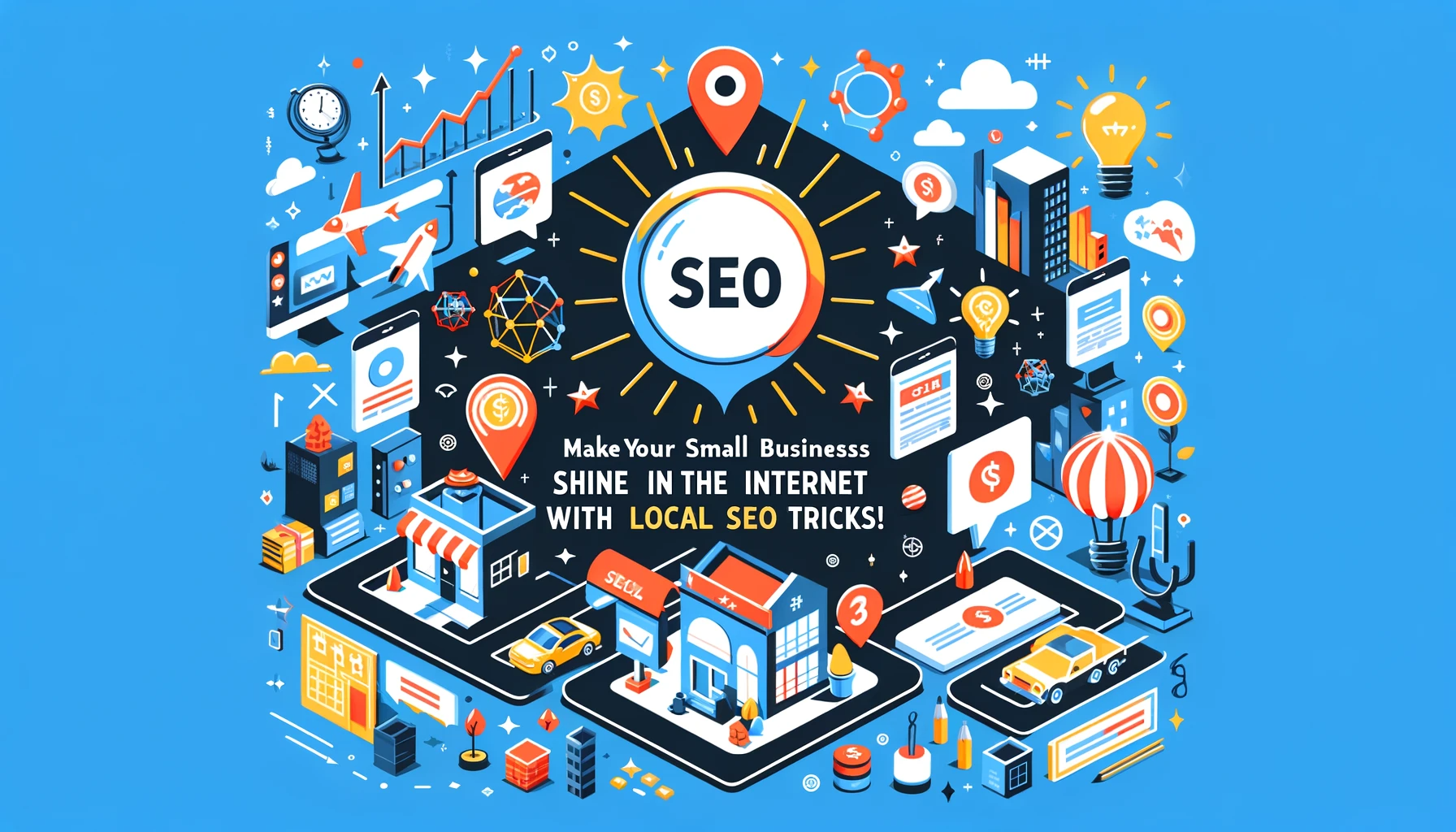
User Review
( votes)Are you a small business owner wanting to improve your marketing skills? Whether you’re starting out or aiming to enhance your expertise, there are valuable lessons to be learned from field experts. This article covers creating a compelling brand story and mastering social media marketing. It offers guidance and insights to elevate your small business marketing game. With expert tips and practical advice, you’ll be on your way to success in the competitive world of small business marketing.

Learn Small Business Marketing Basics
Understand Your Buyer Persona
Small businesses should know who their customers are. This includes their age, gender, income, and location. Knowing these details helps tailor marketing strategies to attract and engage the target audience. It’s also important to understand the goals and challenges of the buyer’s persona. What do they need, and what obstacles do they face? Identifying these aspects helps tailor products or services to meet customer needs. Equally important are the pain points and objections of the buyer persona.
What concerns or hesitations might they have? Addressing these issues upfront can make it easier to convert leads into customers. Understanding the buyer persona is crucial for small businesses to create effective marketing strategies.
Craft Your Value Proposition
Crafting a strong value proposition is important for small businesses. It helps them stand out in the market. A unique selling point sets a product or service apart from competitors. By identifying this, businesses can effectively communicate the value they bring to their customers.
Highlighting how the product or service solves a specific problem or fulfills a need for the target audience is crucial. For instance, a local bakery may emphasize its use of organic ingredients to appeal to health-conscious customers.
Furthermore, showcasing the added value that the product or service brings to customers’ lives or businesses is important. This can be demonstrated through customer testimonials or case studies that illustrate the positive impact of the product or service.
Build a Strong Foundation: Your Website
Elements of a Successful Website
A successful website should be easy to use, have clear navigation, and work well on mobile devices.
Good landing pages with interesting content and clear buttons for taking action can make a website more successful by getting people involved and increasing the number of visitors who become customers.
Social media helps bring more people to a website by giving a way to share helpful things, talk to the audience, and get more visitors through people sharing and liking things.
Adding social media sharing buttons to a website lets visitors share things easily, which makes the website more well-known.
Doing these things can help small businesses tell more people about what they offer, make more people know about their brand, and get more people to visit their website and become customers.
Create Effective Landing Pages
Crafting a compelling value proposition is important for small businesses. It helps capture the attention of their target audience on landing pages. By clearly communicating the unique benefits of a product or service, businesses can effectively address the needs and desires of potential customers.
Incorporating key elements such as concise and persuasive messaging, compelling visuals, and a clear call-to-action can greatly increase the chances of converting visitors into leads or customers.
To optimize landing pages for different marketing campaigns and goals, businesses can use strategies such as A/B testing, personalized content, and targeted messaging. These tactics can help tailor the landing page experience to specific audience segments and improve overall conversion rates.
Attract More Eyes With Social Media

Pick the Right Platforms
Understanding the target audience’s demographics and interests is important when choosing marketing platforms. Factors like age, gender, location, and interests can help small businesses pick the right social media platforms.
For example, if the audience is mainly teenagers and young adults, platforms like Instagram and TikTok may work better than Facebook. It’s also essential to make the most of each platform’s unique features to maximize marketing efforts. For instance, Instagram’s visual nature suits businesses with strong visual content, while LinkedIn’s professional focus is better for B2B marketing. Adapting content to each platform’s capabilities can lead to more effective marketing strategies.
Plan Your Social Media Posting
As a small business owner, planning your social media posts can help you get more people interested and involved. To pick what to post about, think about different things that matter to your target audience, like promoting your products or services, sharing industry news, showing off customer reviews, or giving a peek behind the scenes of your business. Changing up what you post about can keep your audience engaged.
When it comes to how often to post, it’s a good idea to make a schedule for each social media platform you use.
For example, posting once a day on Instagram might work well, but Twitter might need more frequent posts to keep up with the fast-paced feed. Having clear goals and schedules can help small businesses have a strong and reliable social media presence.
Engage With Influencers
Engaging with influencers can greatly boost a small business’s brand visibility. One effective strategy is to identify key influencers in the industry and build genuine relationships with them.
This can be achieved by regularly engaging with their content, sharing their posts, and reaching out with personalized messages. It’s essential to maintain these relationships by consistently providing value to the influencers, such as offering exclusive access to new products or industry insights.
Collaborating with influencers allows small businesses to achieve marketing objectives by tapping into the influencer’s engaged and loyal audience. This can result in increased brand awareness, website traffic, and ultimately, sales.
Advancing Your Video Content Game
Make Videos That Stand Out
To make standout videos, small businesses can focus on creating unique and engaging content. Understanding their target audience and their specific needs is important. Tailoring video content to resonate with viewers and capture their attention is key. Implementing storytelling techniques and injecting creativity can make videos more memorable. Incorporating customer success stories, behind-the-scenes footage, or interactive elements can make the videos more engaging.
Using humor, emotional appeals, or unexpected twists can further enhance the impact of the videos. Experimenting with different styles, formats, and messaging can help small businesses find the right formula to stand out in the crowded digital space.
Use Social Media to Share Your Story
Social media is a great way for small businesses to tell their story. They can do this by creating interesting content that shows off what makes their brand special, like its values and the people who work there.
To reach more people and connect with potential customers, small businesses can:
- Post high-quality and eye-catching content regularly
- Interact with followers by replying to comments and messages
- Use hashtags to make their posts more visible
Small Business Marketing: Dive Into Ads

Discover Advertising Ideas That Work
Discovering advertising ideas that work for small businesses involves thinking creatively and finding unique ways to reach the target audience. One effective strategy is using social media to engage potential customers and build brand awareness. This can include creating impactful visual content or sharing customer testimonials to connect with the audience. Collaborating with other local businesses through cross-promotions or joint events can also help expand advertising efforts.
Small businesses can learn from the successful strategies of others by analyzing their tactics and incorporating similar elements into their own campaigns. When crafting advertising ideas, it’s important to focus on conveying a clear and compelling message that highlights the business’s unique selling points. Implementing strong calls to action and using data-driven marketing strategies can further enhance the effectiveness of advertising efforts for small businesses.
Learn From the Ads of Successful Small Businesses
Small businesses can learn a lot from their peers’ advertisements. By analyzing these ads, they can gain insight into effective marketing strategies to attract and retain customers.
Some key elements that make ads stand out include clear and concise messaging, appealing visuals, and a strong call to action.
Studying the strategies of successful small businesses can help other companies gain a better understanding of their target audience and how to effectively reach them.
For example, a successful small cafe may have a visually appealing and informative advertisement that highlights its unique menu items and friendly atmosphere. This can teach other small food businesses how to effectively showcase their offerings to draw in customers.
Similarly, a successful boutique may have an ad that effectively communicates its brand identity and unique selling points. This provides valuable lessons for other small retailers looking to enhance their promotional efforts.
Email Marketing: Reach Inbox Effectively

Build Your Email List
To build your email list for your small business, you can offer something valuable in exchange for email sign-ups. This could be a discount or a free resource. Engaging with customers on social media and promoting sign-ups on your website are also effective strategies.
Creating campaigns that encourage email openings and engagement can be achieved by personalizing the content. This includes targeting specific customer segments, using catchy subject lines, and using compelling visuals. It’s also important to provide valuable and relevant content in your emails to keep subscribers engaged.
To sustain growth with long-term email marketing strategies, consider automating email sequences, engaging with customers through regular newsletters, and analyzing data to optimize your campaigns. Another effective way is to segment your email list based on past interactions or customer behavior. This allows you to tailor your communication and offers to specific segments.
Create Campaigns That Get Opened
Crafting engaging and impactful email campaigns for small business marketing is essential for capturing the attention of the target audience. To create campaign subjects that get opened, businesses can use attention-grabbing and relevant subject lines that entice recipients to click. This can include using personalization techniques, such as including the recipient’s name, location, or other personalized details, to make the email more appealing and increase open rates.
Use Online Marketing to Find Web Prospects

SEO 101 for Small Business Marketing
A successful small business website needs to be:
- User-friendly
- Mobile-responsive
- Optimized for search engines
Implementing relevant keywords, creating quality content, and obtaining credible backlinks can significantly improve a website’s SEO. Small businesses can also use Google My Business and local directories to boost online visibility.
Short-term marketing strategies like social media advertising, email marketing, and influencer partnerships can attract new customers and increase brand awareness. By consistently monitoring website analytics and adjusting SEO strategies as needed, small businesses can take advantage of digital marketing to grow their online presence.
Content Marketing Through Blogging
Content marketing through blogging means creating and sharing valuable, relevant, and consistent content to attract and engage a target audience. This involves offering informative and insightful blog posts that address the needs and interests of potential customers. Businesses can establish themselves as industry leaders and build trust with their audience by providing valuable content.
Blogging also allows for showcasing the human side of the business, providing a more personalized touch that can resonate with readers. To maximize the impact, businesses can employ strategies like identifying target keywords for search engine optimization, promoting blog posts on social media, and engaging with readers through comments and discussions. Including visual elements, such as images and infographics, can enhance the overall appeal and effectiveness of the content.
Content marketing through blogging can be a cost-effective and powerful tool for small businesses to expand their online presence and reach new customers.
Harness the Power of CRM Software
Track Interactions With Potential Customers
Tracking interactions with potential customers is important for small businesses. They can do this by using customer relationship management software. This software helps businesses monitor key metrics such as customer engagement, lead conversion rates, and customer feedback. By doing this, businesses can better understand their customers’ needs and preferences.
Boost Sales With Customer Relationship Management
Customer relationship management is really important for small businesses. It helps them keep track of interactions with potential customers and boost sales. With CRM software, businesses can keep detailed records of customer communication, leading to better follow-up and personalized interactions. Using CRM tools can also help with targeted marketing campaigns and increase sales and customer retention.
For example, businesses can tailor email campaigns to specific customer segments based on their past purchases or interactions with the business, resulting in higher engagement and conversion rates. CRM software can also analyze customer data and behaviors, providing valuable insights for short-term wins and sustained growth in marketing strategies. For instance, identifying trends and patterns in customer behavior can inform product development and promotional strategies to better meet customer needs and preferences.
Marketing Strategies for Short-term Wins
Small business owners have options for quickly boosting their brand and making immediate sales. They can offer short-term discounts and run flash sales, creating urgency with countdown timers to encourage fast purchases. Using social media like Instagram and Facebook to share engaging visuals and interact with customers can also attract attention. Partnering with local influencers, hosting pop-up events, and collaborating with other businesses have also shown success.
Conclusion
The key to long-term success for small businesses lies in the strategic implementation of sustainable marketing practices. By focusing on creating valuable content, engaging with audiences on social media, optimizing for SEO, and utilizing email marketing, small businesses can build a solid foundation for growth. These strategies not only help in nurturing a loyal customer base but also ensure that the business remains relevant and competitive in a constantly evolving market.
Learning from experts and adapting these insights into your marketing approach can significantly enhance your skill set, helping your business to thrive and grow in the long run. Remember, sustainable growth in small business marketing is a marathon, not a sprint, and requires consistent effort and adaptation to the changing marketing landscape.







